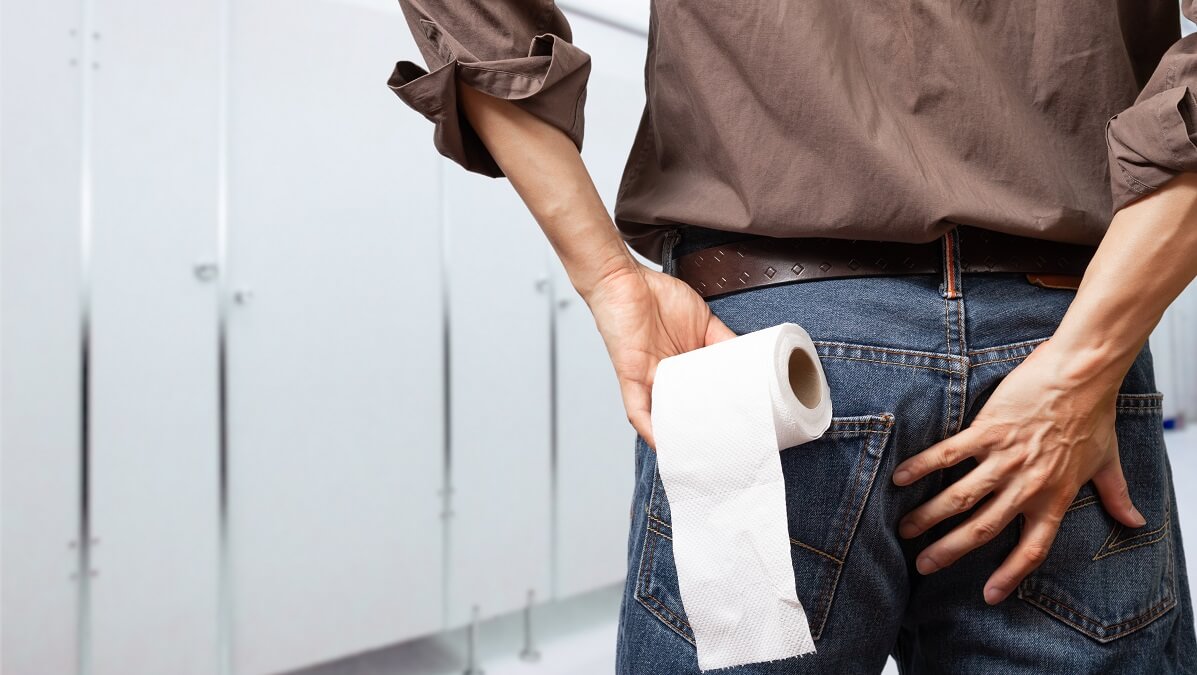Poo, understandably, is not a subject many of us broach with much frequency. And we will probably discuss our poo frequency even more infrequently.
But our bowel habits are probably a topic that many of us could benefit from talking about – perhaps not over dinner, but just as part of a general health conversation.
‘Frequency’ in this case refers to how often you actually go to the toilet and evacuate your bowels.
Talking about this (faecal) matter more often might help to dispel some of the more common myths surrounding what is – and isn’t – normal when it comes poo.
The most common of the myths is a perception that you must go first thing when you get up each day. To be clear, there is certainly nothing wrong with that, and many people have spent their lives starting their days with a nice, big poo.
It’s that so many do begin each day that way that may have led to the myth. While it may be the most common of bowel habits, that fact alone does not mean any variation is a sign that something might be wrong with you.
The poo frequency spectrum considered to be within a healthy range by most medical specialists runs from three times a day to three times a week.
If you only have the urge to go every couple of days and you have no health issues, chances are that three or four times a week is right for you.
It’s the same if you go three times a day. Feeling healthy otherwise? Then thrice daily is probably just what your body needs.
Medical science recognises that wide spectrum, and doctors will in general not be bothered by any reported frequency that falls within it.
What doctors will be concerned by is an unexpected change in that frequency. If you’ve been a once-a-day person all your life and you suddenly find yourself needing to go three or four times a day, that could be a signal that something is not quite right with your bowels.
The issue could be a minor one, and you might be able to diagnose the trigger yourself. For instance, you might have noticed that the day after having a hot curry for dinner you find yourself having to go more than your usual once, and that your poo’s consistency isn’t what it usually is.
If things quickly return to normal, and you find the change the day after curry nights, you can be reasonably confident that this is simply how your normal, healthy gut deals with a bit of extra spice.
But if your diet hasn’t changed and your frequency has, that might be worthy of attention. If the change persists, a visit to the GP might be in order.
You might not have had any of the issues mentioned here. Your bowels might work with the precision timing of a Swiss watch. But that doesn’t mean there aren’t things you can do to keep your gut healthy.
Recent discussions with gut specialists revealed some of their recommendations and – surprise, surprise – they included pearls of advice such as eating a variety of foods (including five different-coloured fruits and vegetables each day) and getting regular exercise.
There’s no escaping the fact that a healthy lifestyle will give you a better chance of a healthy life. There are other things you can do, though, such as include prebiotics and probiotics in your diet.
Science has also taught us that the link between the gut’s microbiome and the brain is very strong in many of us. So your sudden change in poo frequency could be related to anxiety or depression.
More frequent chats about poo frequency probably wouldn’t be a bad thing. But if that’s a step too far for your sensibilities, at least take the time to learn about what is normal for you. If you have any doubts, see a GP. That you’ll be less likely to end up in the poo, as it were.
Do you play close attention to your bowel habits? Is it a subject you might ever discuss with family or friends? Why not share your thoughts in the comments section below?
Also read: Successful trial could revolutionise bowel cancer treatment

